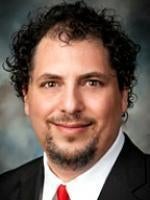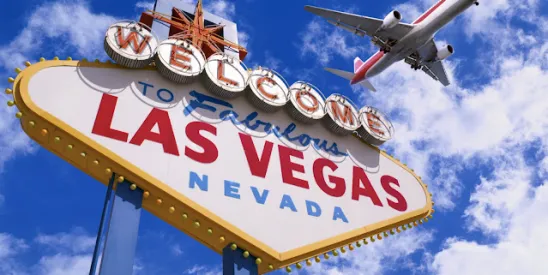The Nevada Gaming Control Board (Board) has finalized its changes to the state’s Live Entertainment Tax (LET) assessed on gaming licensees, as mandated by the Nevada Legislature. With the adopted final draft, the Board resolved some contentious issues.
In many ways, this new LET is simpler. Under the new LET structure, all live entertainment events for which there is an admission charge are taxed uniformly at a flat rate of 9 percent of the admission charge to a venue where live entertainment is provided. The tax is no longer imposed on amounts paid for food, refreshments, or merchandise sold at the venue (unless the purchase of such items is required as part of the price of admission), is not imposed on amounts paid for access to tables, seats, lounge chairs, or particular areas of a venue, and is not imposed on the value of admissions provided to a patron on a complimentary basis. The new LET applies to outdoor entertainment events (which were formerly exempted), nonprofits that sell more than 7,500 tickets to an event, and legal escort services (a new LET category).
The other exemptions found in the old LET remain largely the same and include professional sports events if one of the teams playing is domiciled in Nevada, Nevada college sports events, other school events if only the students and teachers provide the entertainment, boxing events, events at facilities with an occupancy of 200 or fewer persons, and entertainment at trade shows, in shopping malls, at organizations’ private dinners or meetings, and roving musicians.
Some issues, however, required additional discussion and clarification following the initial Board draft. The Board has addressed these in the final draft. One issue, for example, was a question on how the LET will apply to luxury suites, boxes, or similar products for venues with less than a 7,500-person occupancy. The new LET does not include license or rental fees for luxury suites, boxes, or similar products at facilities with a maximum occupancy of at least 7,500 persons; however, the LET must be paid for such license or rental fees for venues with less than a 7,500-person occupancy. The question was raised by a taxpayer whether for these smaller venues they should continue to use “historical practices” to calculate that admission charge – which they submitted should be the number of luxury boxes divided by the ticket price times the number of live events. In the final draft, the Board has provided for flexibility to consider such alternative methods of calculating the LET by adding in a new subsection that provides that taxpayers may submit a written request to the Chairman to obtain approval to use an alternative method of calculating the tax under this section.
Another issue concerned events where admissions may be charged on an ongoing basis but entertainment is provided for only a portion of the time. The Board addressed these concerns by allowing venues to dispute how the LET is applied to their event based on the timing of when the admissions were paid and when the event begins and concludes by submitting a written request to the Chairman to obtain approval to use an alternative method to determine which admission charges are subject to the tax.
Another key issue the Board resolved is which associated fees or “service charges” are to be included in the LET. As noted in our last article on this subject, the traditional payment of credit card or debit card fees to a financial institution that are unreturned to the venue remain clearly exempt under the revised law. This debate centered on the definition of the term “service charge” and what additional “service charges” should be included in the tax – and specifically whether Ticketmaster fees and other similar charges by third parties who sell and issue tickets would be included in the LET.
Taxpayers argued that service charges by Ticketmaster or other third parties should be treated like credit/debit card fees and not taxed as part of the LET when that service charge is not remitted to the venue. They also argued that charges for additional services or amenities, such as special event parking or shuttles to the venue, should not be included in the LET as long as those charges and services are optional and not required for admission to the venue.
The Board addressed these concerns by clarifying that “service charges” are to be included in the LET. This debate centered on the definition of the term “service charge” and what additional “service charges” should be included in the tax – and specifically whether Ticketmaster fees and other similar charges by third parties who sell and issue tickets would be included in the LET.
Taxpayers argued that service charges by Ticketmaster or other third parties should be treated like credit/debit card fees and not taxed as part of the LET when that service charge is not remitted to the venue. They also argued that charges for additional services or amenities, such as special event parking or shuttles to the venue, should not be included in the LET as long as those charges and services are optional and not required for admission to the venue.
The Board addressed these concerns by clarifying that a “service charge or any other fee or charge” means “an amount imposed and received by, or on behalf of, a taxpayer or operator for which the patron could not obtain admission to the facility without its payment.” Second, they introduced two new definitions – for “ticket broker” and “ticket service provider” – and provide that a “service charge” does not include “an amount imposed and retained by a ticket broker or a ticket service provider.”
One last concern that the Board clarified is the definition of “performance.” This has always been a subjective definition, to which the Board has attempted to add clarity. One way the Board has done this is to specifically define disc jockey performances and provide that they are “performances” under the LET, whether or not the DJ vocally addresses the crowd. The amended regulation also updates the definition of “performance” which is the presentation of an activity as set forth in NRS 368A.090(2)(a) that is the “primary reason” for which a patron or patrons paid an admission charge to access the facility. In considering whether the activity was the “primary reason” for the payment of admission, the Board has two factors they may consider:
-
Whether the live entertainment activity is advertised, promoted, or otherwise marketed; and/or
-
Whether the live entertainment activity garners the predominant attention of a patron or patrons at a facility.
If a potential taxpayer has any questions on whether the LET will be applicable to their event or how it should be calculated, the taxpayer may request an advisory opinion from the Board. The Board may publish some of these advisory opinions if they find they respond to general questions and can assist a number of taxpayers. Such publication would be made in a way as to not disclose the identity of the taxpayer who requested the opinion.
These new regulations are not in effect. Note that for non-gaming licensees there are parallel regulations to implement SB267 that are being worked on by the Nevada Department of Taxation.







 />i
/>i
